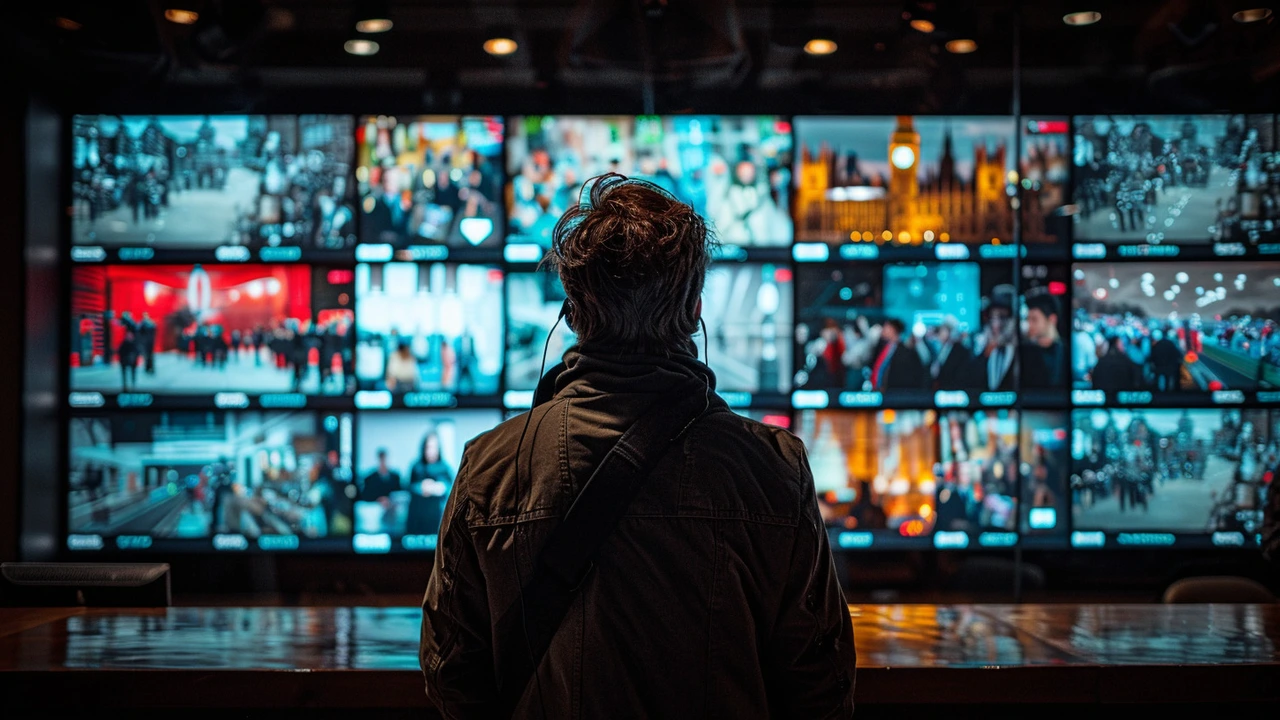
The Advent of AI in Advertising
The digital age has given birth to numerous innovations, but perhaps none have been as transformative to the advertising sector as the emergence of AI technologies like ChatGPT. Gone are the days when advertising was merely about catchy taglines and eye-catching visuals. Today, it's about leveraging sophisticated algorithms and machine learning to deliver personalized, relevant, and engaging content to consumers.
AI's integration into advertising has empowered brands to dissect vast amounts of data to discern consumer behavior patterns, preferences, and potential future actions. This data-driven approach allows for an optimization of marketing strategies that was once thought impossible, enabling advertisers to reach their target audience more effectively than ever before.
ChatGPT: Beyond Simple Chatbots
Initially, the role of AI in advertising was confined to powering basic chatbots for customer service. However, ChatGPT has taken things several notches higher. Unlike its predecessors, ChatGPT is equipped with the capability to understand and generate human-like text, making it an invaluable tool for creating compelling and personalized advertising content.
The advanced natural language processing (NLP) capabilities of ChatGPT mean it can craft messages that resonate on a personal level with consumers, enhancing engagement rates significantly. This breakthrough in AI technology is not merely changing how content is created; it's transforming the very essence of customer-business interaction.
Enhanced Customer Engagement through Personalization
One of the key benefits of utilizing ChatGPT in advertising strategies is the unparalleled level of personalization it offers. Businesses can now communicate with their customers in a more direct and engaging manner, tailoring messages specifically to individual preferences and behaviors. This level of personalization was once a labor-intensive process, but AI has streamlined it, making targeted communication more accessible and effective.
The implications of this are profound, leading to increased customer loyalty and higher conversion rates. Personalized advertising, powered by AI like ChatGPT, means consumers are presented with content that is not only relevant but also timely and appealing to their specific interests.
Streamlining Content Creation
The advent of AI tools like ChatGPT in advertising has also revolutionized the content creation process. Marketers no longer need to spend countless hours brainstorming, writing, and revising content. ChatGPT can generate high-quality, engaging text in a fraction of the time, from product descriptions to ad copy, and even blog posts.
This efficiency in content creation allows marketing teams to allocate their resources more effectively, focusing on strategy and creativity rather than the tedious aspects of content production. As a result, brands can scale their content output without compromising quality, keeping up with the ever-increasing demand for fresh, relevant content.
Optimizing Ad Performance with Real-time Data
ChatGPT's impact on advertising extends beyond content creation to include ad performance optimization. With its ability to analyze and interpret large datasets, ChatGPT can provide insights into how ads are performing in real-time, enabling marketers to make data-driven adjustments on the fly.
This level of agility in ad optimization was previously unattainable, but with AI, advertisers can now tweak their campaigns to maximize ROI, ensuring that every penny spent is accounted for. The dynamism of real-time data analysis and optimization underscores the strategic advantage that AI-equipped businesses have in today's competitive marketplace.
Challenges and Ethical Considerations
Despite the undeniable benefits, the integration of AI like ChatGPT in advertising is not without its challenges. Issues such as data privacy, the potential for biased algorithms, and the need for transparency present ethical considerations that businesses must navigate carefully.
Responsible use of AI in advertising demands adherence to privacy laws, ethical guidelines, and a commitment to using data for the betterment of consumer experiences. Navigating these challenges successfully is crucial for businesses looking to harness the full potential of AI in their advertising strategies.
The Future of Advertising with ChatGPT
The rise of ChatGPT heralds a new era in advertising, marked by increased personalization, efficiency, and data-driven decision-making. As AI technologies continue to evolve, we can expect to see even more innovative applications in the advertising realm, from predictive analytics to automated campaign management.
The future promises an advertising landscape where AI not only complements human creativity but also propels it to new heights. The transformative impact of ChatGPT and AI at large on advertising is undeniable, ushering in a new dawn of possibilities for marketers worldwide.
Embracing the Change: Tips for Marketers
For marketers looking to stay ahead in the rapidly changing world of advertising, embracing AI tools like ChatGPT is not just an option; it's a necessity. Staying informed about the latest advancements, experimenting with new AI-driven strategies, and prioritizing ethical considerations are key steps in leveraging AI to its full potential.
As we stand on the brink of this new dawn in advertising, it's clear that the integration of technologies like ChatGPT will continue to reshape the landscape in ways we're just beginning to understand. The future of advertising is bright, and it's powered by AI.